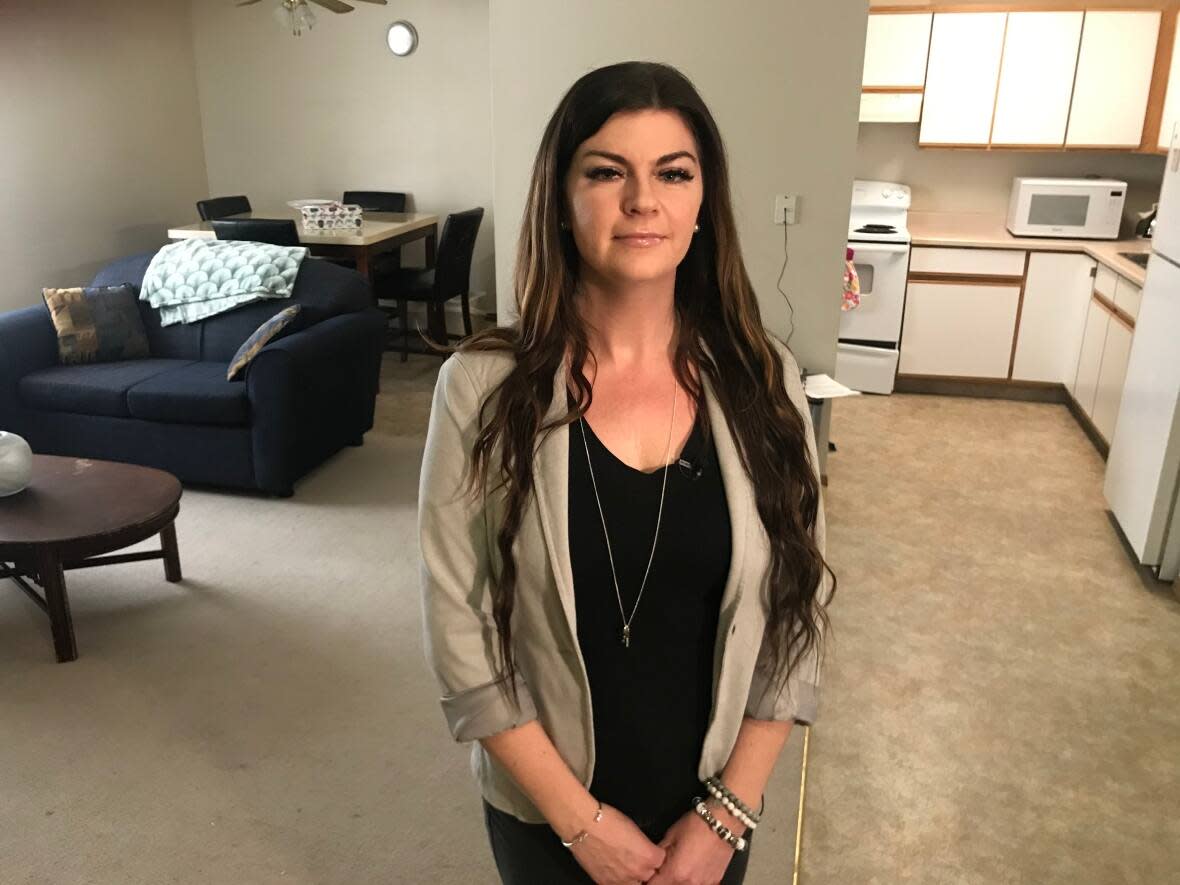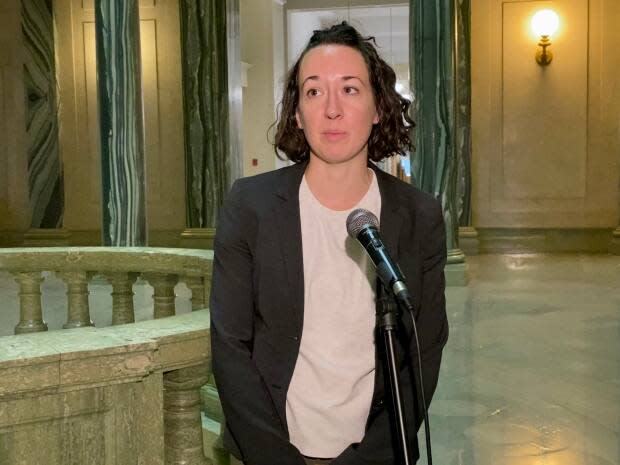Sophia House says budget for second-stage shelters 'positive first step,' NDP calls for more funding

The Saskatchewan government's 2023/24 budget — released Wednesday — included a three-year commitment to fund second-stage shelter supports for survivors of interpersonal violence.
Wording in the budget indicated that the $876,000 over three years would be devoted to the expansion of counselling services in second-stage shelters. However, Justice Minister Bronwyn Eyre told CBC on Wednesday that the funding could be used for operational costs shelters need to get to the second stage.
"Operational in the context of second-stage is really for that intervention and consultation component. And so really what we're seeing is a three-year pilot for facilities that are doing those things now and can build on what they're doing in the first-stage phase," Eyre said.
Second-stage shelters feature security doors, video surveillance and bulletproof windows, protecting women while they receive counselling for issues such as poverty, and support to become independent. Women and their children can stay in these facilities for a year or more.
The minister said the government landed on $876,000 based on what shelters were already second-stage and which were ready to shift to second-stage. The amount of funding allocated to shelters is based on how many units or beds are currently possible or present in these facilities.
"We wanted to be able to hit the ground running with facilities that are already operating and in a position where they can offer this right away."
The minister said introducing the emergency intervention phase at shelters is the step needed to become second-stage.
"It provides that stability most of all for clients and their children to stay in a stable environment, and have access to intervention and consulting services that help them make that transition."

Saskatchewan has had the highest rate of intimate partner violence — especially against female victims — reported to police among the Canadian provinces since at least 2019, Statistics Canada data shows.
The territories, which have much smaller populations, report higher rates, but thousands fewer victims, data shows.
Up until now, Saskatchewan was one of the few provinces that didn't fund second-stage shelters.
Sophia House hopeful about future
Tmira Marchment, executive director of the Regina women's second-stage shelter Sophia House, said the money put aside in the budget for these shelters is great news.
"We have been advocating for any operational funding for years now. So to see that it's being included in the budget this year is a really positive first step," Marchment said.
Sophia House has previously operated mainly on grants, donations and contributions from the community.
"So we didn't know year-to-year whether or not we could continue to run our programming. So some stable operational funding is a really, really good step," she said.
"For us, it's the difference between being able to continue our programming and having to shut some of our programming and services down because we don't have the funding to continue it."
Marchment said she hopes the funding will incrementally increase in the future so Sophia House can better help women and children.
"I think we can work each year with government to kind of show the success of second-stage shelters, and how important they are in the community and how, you know, limited services are right now based on lack of funding. So I am hopeful for the future."
Eyre said the province will track the success of second-stage shelters and continue to meet with stakeholders.
"We're going to assess from here certainly regularly with the facilities. But going forward over the three years and at the end of the pilot project … Do we expand? Where do we expand and how?" said Eyre.
Opposition NDP wants Sask. government to expand funding
Nicole Sarauer, Opposition NDP justice critic, said she is glad to see the funding in the budget, but thought it would be more.
"We're worried about … will this funding be permanent and ongoing? Will it stretch beyond the three years and is it sufficient to meet the needs?"

Sarauer said she's not sure if the $876,000 is enough.
"I think it's a step forward, absolutely. But it's definitely not a mission accomplished banner by any stretch of the imagination."
Sarauer said she doesn't want to see any progress on second-stage shelters delayed because the budget is insufficient. She said the NDP is worried about how bad the need is right now and whether or not the funding will alleviate that pressure.
"We don't want another woman to have to go back to a situation of violence because there isn't a second-stage shelter space or support available to her."
Sarauer said she is happy to see that a dialogue between the Saskatchewan government and shelters has begun.
"It needs to continue, and we don't want this ministry to wait three years to make the decision that the funding on this should be increased and made permanent and ongoing. The hope is that next budget they realize that the need is great and that the support really is valuable."


